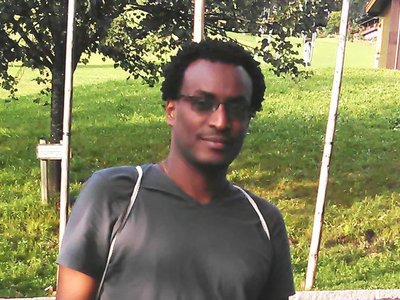

"The European Forum Alpbach organises annually an interdisciplinary conference in the Austrian Alps, which provides a platform for scientists, politicians and students of different disciplines coming from all over the world to discuss and exchange ideas. Scholarship holder Girum Kinfemichael Gebremariam got a scholarship from the Robert Bosch Foundation to participate in this year’s forum which took place between the 16th of August and 1st of September 2017. Read the reflection of Girum Kinfemichael Gebremariam “It has been known since a long time that the European Forum Alpbach yearly organises an interdisciplinary dialogue, which is considered to be significant in the context of addressing the key contemporary challenges of our planet.
As we know, nowadays, the constant threat of conflicts and chaos in the Middle East, Afghanistan, Somalia, South Sudan and in some other parts of our planet, and global terrorism all show how the world we live in now may not be as safe as we would have hoped. Even after the end of the Cold War, new security issues and threats have been raised like environmental degradation, poverty, hunger, diseases, and weak/failing states. The events of the 9/11 attack have also changed the way we think about security and cooperation. While a few years ago conflicts may have occurred between states, after the 9/11 attack we are fighting non-state actors, a group of people rather than a state. Let’s also not forget the other global challenges that many of us should not overlook.The widening gap between the rich and the poor, food scarcity, global warming, limited natural resources and occasional economic recessions can all lead to more conflict and test the strength of our cooperation. It is true that the world at the moment looks bleak and only time will tell if we can come up with some solutions to these multifaceted menaces. At this conjuncture, given so many critical issues facing our globe these days, the forum theme was so relevant to offer an interdisciplinary platform for scientists, international decision-makers, politicians and students of diverse disciplines coming from all over the world to discuss, exchange ideas and views to put forward proposals on how to build a peaceful global environment through global cooperation.
As a young African academic my participation in the conference was quite worthwhile and greatly benefited me as a PhD student. A special added value of this event was the opportunity to network with other students and professionals from all over the world, which was in fact an exceptional chance for horizontal exchange of various ideas, perspectives, channels of thought, and experience.
To sum up, I indeed optimised the occasion to familiarise with and broaden my horizons on the wide-ranging global issues that revolving around under the topic of ‘Conflict and Cooperation’ at Alpbach.”
Girum Kinfemichael Gebremariam holds an MA in Federal Studies and a BA in Political Science and International Relations with minor in Management and Public Administration from Addis Ababa University, Addis Ababa, Ethiopia. Since then Girum worked for various governmental institutions, colleges and NGOs at different capacities. In August 2011, he joined the Ethiopian Civil Service University, Institute of Federalism and Legal Studies (now School of Law and Federalism) as a full-time lecturer. In subsequent years in his teaching career, he served as a senior lecturer before obtaining an APPEAR scholarship in March 2017 to carry out his PhD studies in Austria at the Karl-Franzens-University of Graz, in the framework of the AAPLHRE project. As part of his PhD project, he has travelled, participated and presented a research paper in the area of federalism and accommodation of diversity. More recently, he has presented a research paper entitled ‘Federalism and Intergroup Relations in Multi-Ethnic States: The Ethiopian Experience’ at a Workshop on ‘Governing Diversity in the 21st Century: The Quest for National Unity and Contested Accommodation of Minorities.
Girum has different publications. Some of them include:
- ‘The Quest for Resolution of Guji-Gedeo Conflicts in Southern Ethiopia: A Review of Mechanisms Employed, Actors and Their Effectiveness’, Ethiopian Journal of the Social Sciences and Humanities 10(1) (2014):59-100
- Federalism and Ethnic Conflict Management in Ethiopia: The Case of Guji-Gedeo Conflict (Saarbrücken: LAP Academic Publishing, 2012)
- The Sino-Africa Strategic Partnership: The Need for Continental Approach (2015)
- Ethio-China Partnership: Its Implication for European Development Policy (2015)
- Calls for Vibrant Industrial Policy for Economic Transformation in Africa (2015)
‘How Can the Less Developed Countries (LDCs) Catch up with the Industrialized Countries in the Impending Era of Globalization?’, The Business Review, Vol.1, No.53 (May 2002).
In addition, he has reviewed a journal article entitled
- ‘Peace Building or Development? The Dynamics of Conflict and the Role of the NGOs in the Borana Area of Ethiopia,’ which has been published in the Ethiopian Journal of Social Sciences and Humanities (EJOSSAH) in 2015, Vol.11, No.1.
